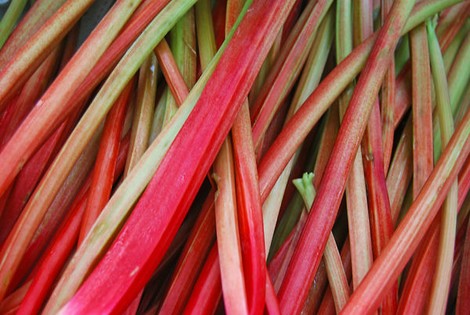Your podcast discovery platform
Curious minds select the most fascinating podcasts from around the world. Discover hand-piqd audio recommendations on your favorite topics.

piqer for: Global finds Technology and society Health and Sanity
Nechama Brodie is a South African journalist and researcher. She is the author of six books, including two critically acclaimed urban histories of Johannesburg and Cape Town. She works as the head of training and research at TRI Facts, part of independent fact-checking organisation Africa Check, and is completing a PhD in data methodology and media studies at the University of the Witwatersrand.
Veggie Pop: The Sound Of Rhubarb Growing
Rhubarb has always been a novelty item in my life — something out of an Enid Blyton book rather than a vegetable I encountered on the lunch or dinner or dessert table. I still haven't learned how to cook it or make a rhubarb pie or compote, but I might have better success ... dancing to it?
Intensive farming of rhubarb, which 'forces' the rhubarb to mature in darkness, causes the plant to grow so quickly that it creates audible (and, as it turns out, recordable) sounds of the plant popping, squeaking and cracking as it adds up to a whopping 250mm (or an inch, for you Imperial folk) to its length in a single night!
For the botanists and epicures among you, the forced growing in the dark makes the plants less stringy and tough as they mature — photosynthesis tends to make the plant more 'tough and fibrous'. The process also makes the plants a deeper and more desirable red colour, with less green. You can't, um, beet it?
